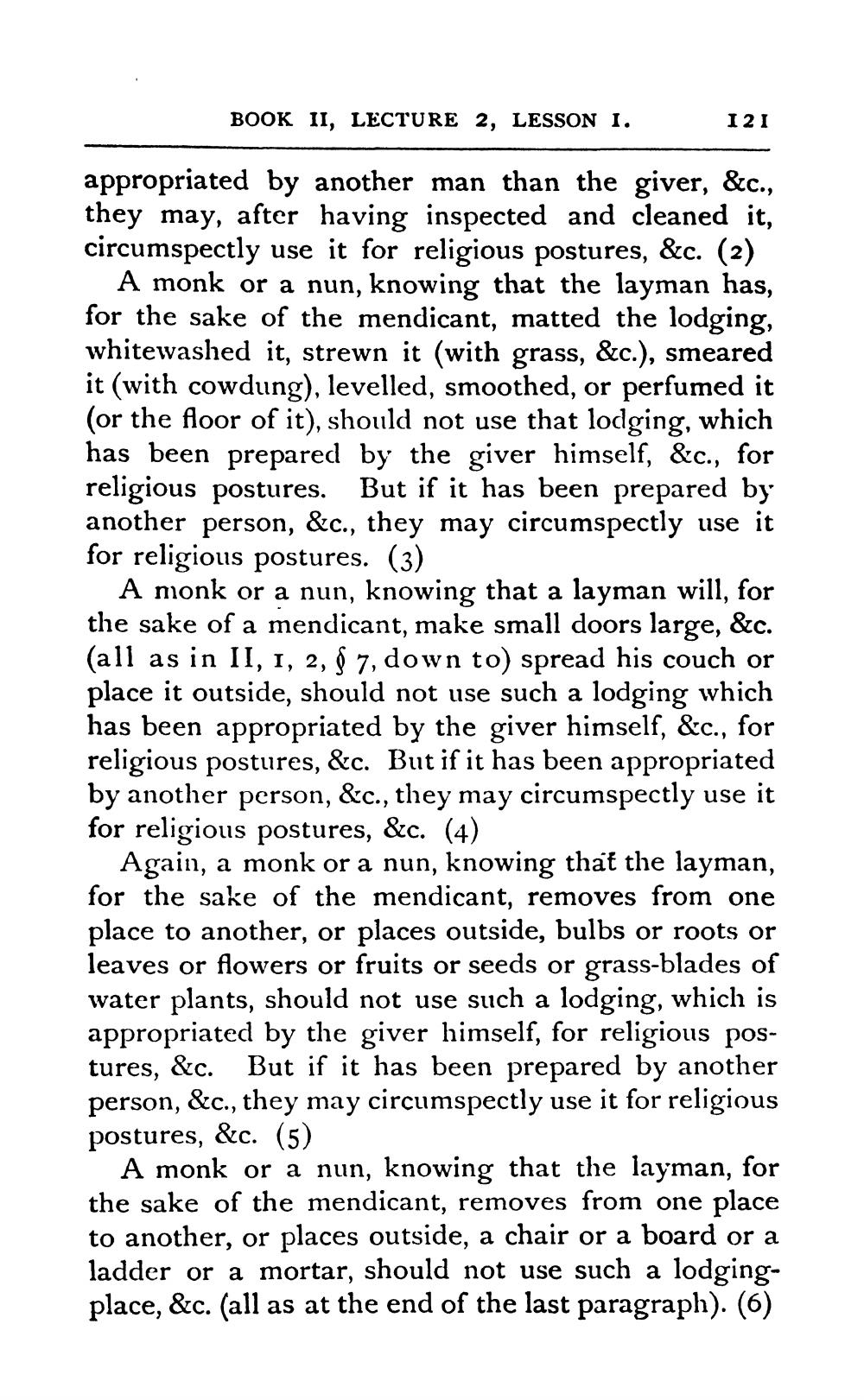________________
BOOK II, LECTURE 2, LESSON 1.
121
appropriated by another man than the giver, &c., they may, after having inspected and cleaned it, circumspectly use it for religious postures, &c. (2)
A monk or a nun, knowing that the layman has, for the sake of the mendicant, matted the lodging, whitewashed it, strewn it (with grass, &c.), smeared it (with cowdung), levelled, smoothed, or perfumed it (or the floor of it), should not use that lodging, which has been prepared by the giver himself, &c., for religious postures. But if it has been prepared by another person, &c., they may circumspectly use it for religious postures. (3)
A monk or a nun, knowing that a layman will, for the sake of a mendicant, make small doors large, &c. (all as in II, 1, 2, § 7, down to spread his couch or place it outside, should not use such a lodging which has been appropriated by the giver himself, &c., for religious postures, &c. But if it has been appropriated by another person, &c., they may circumspectly use it for religious postures, &c. (4)
Again, a monk or a nun, knowing that the layman, for the sake of the mendicant, removes from one place to another, or places outside, bulbs or roots or leaves or flowers or fruits or seeds or grass-blades of water plants, should not use such a lodging, which is appropriated by the giver himself, for religious postures, &c. But if it has been prepared by another person, &c., they may circumspectly use it for religious postures, &c. (5)
A monk or a nun, knowing that the layman, for the sake of the mendicant, removes from one place to another, or places outside, a chair or a board or a ladder or a mortar, should not use such a lodgingplace, &c. (all as at the end of the last paragraph). (6)




